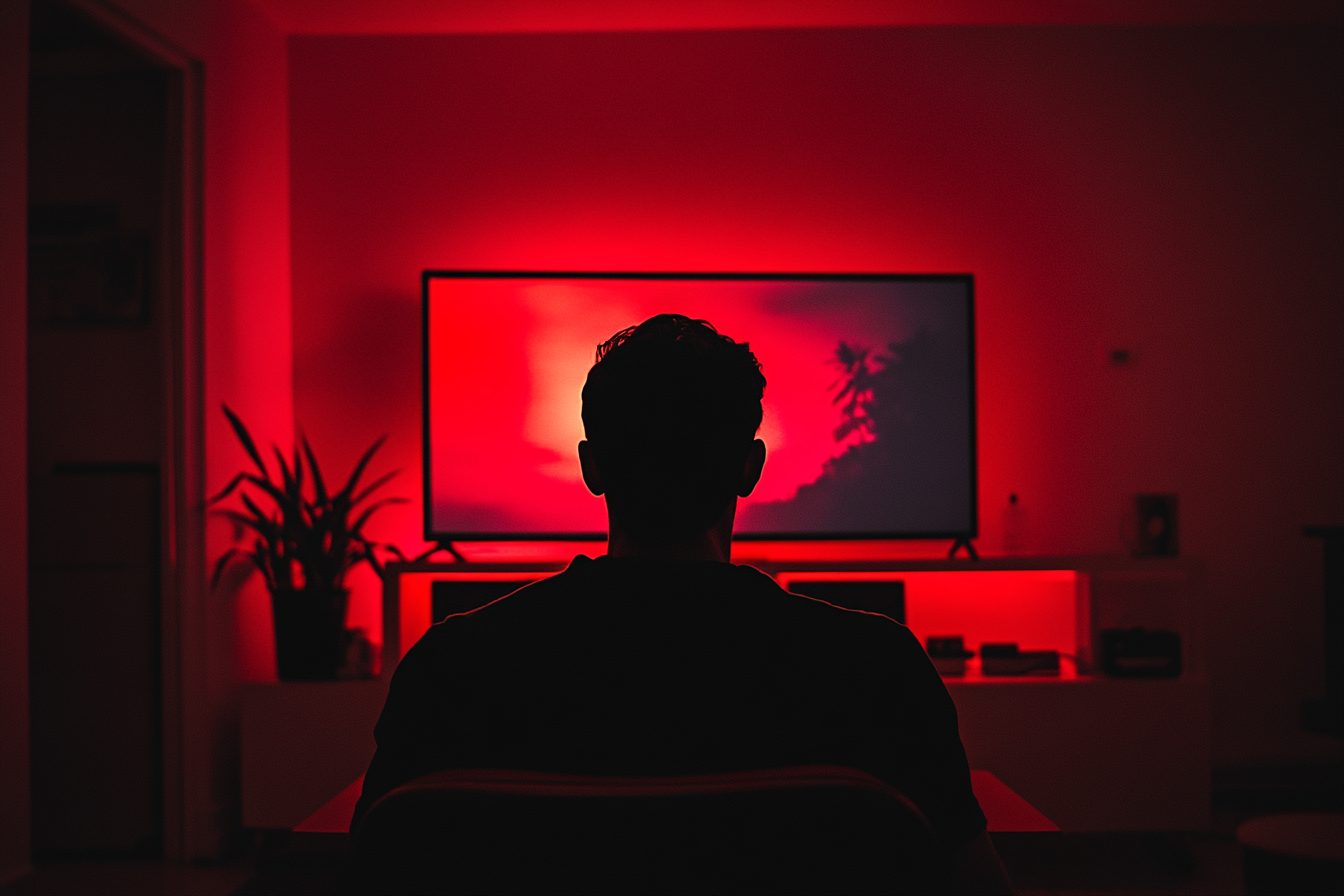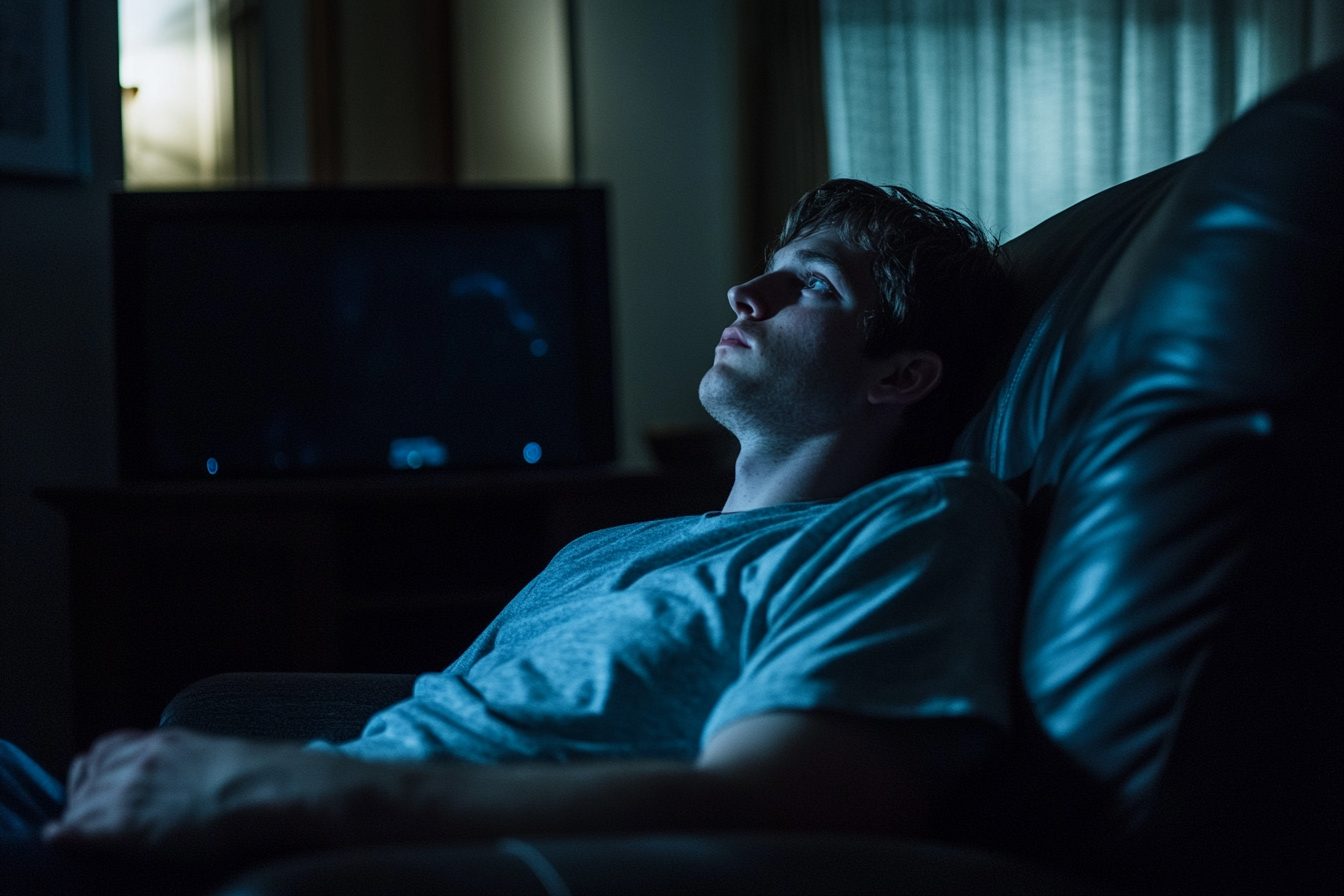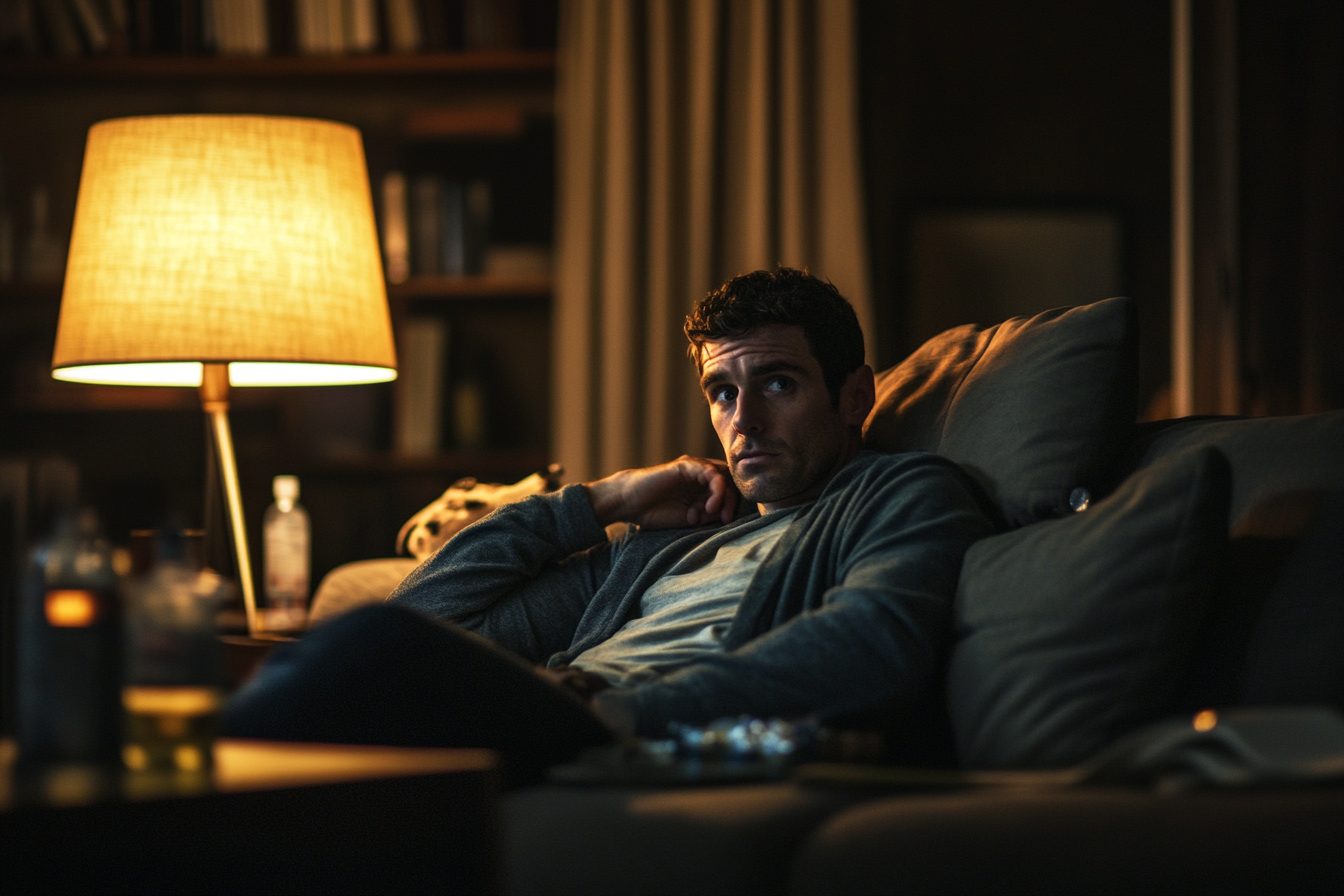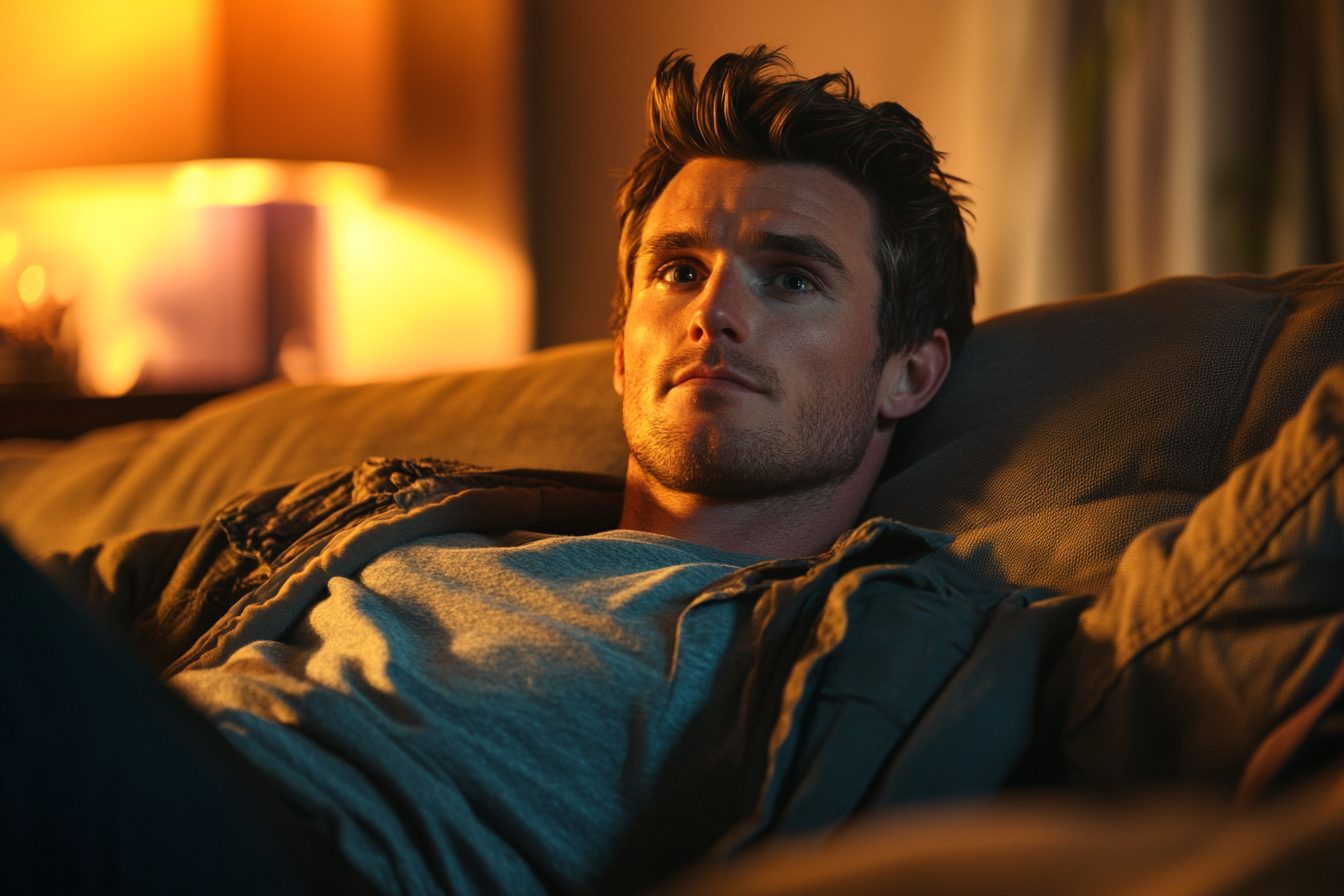I have a little secret to share. This past weekend, I spent the better part of two days watching a whole season of a reality show where attractive people go to an island and make very poor relationship choices. That’s right – I watched seventeen episodes. One after the other. When I finally snapped out of this stupor, I literally could not account for the time spent or understand why my room felt so bright and loud.
This, in and of itself, isn’t necessarily out of the ordinary. But for a small pin to hang the entire scenario on, just three days before this, I had branded a workmate’s binge viewing as moronic and incredibly naive.
His face lit up as if receiving a golden ticket to Disneyland when I asked, “You watched all of that in one weekend? Surely you have, like, hobbies? Or, I don’t know, sunlight to experience?” I punctuated the last remark with a comically expressive hand gesture drawing sunlight into my frame of reference and raised my eyebrow to the maximum judgment height as I expected his answer to form.
The thick hypocrisy I find myself wallowing in is dense enough to spread on toast.
Binge watching is the definition of “it’s complicated” in my world. The years spent critiquing our collective digital dependencies have notoriously not come to bite me, but I certainly should have known better. And here I am, a proud owner of a large collection of essays dedicated to the art of mindful media consumption detailing research studies on the psychological effects of narrative overload. Imagine the smug assurance I get while quoting “delayed gratification” and “moderation”.
“Then there I was again at 2 AM, cursor hovering over “Next Episode” as a mindless determination of a lab rodent fixated on its animalistic pleasure lever. Without hesitation, and with no deductive forethought, I obediently clicked the button.”
“Oh, how I had fallen for a trap of my self creation and now I was stuck in a shame spiral that follows a binge watch session. The marathon binge watch cycle starts off with “Just one episode, I need to wind down”, now all too often have I heard or personally resorted to that statement as a just enough gateway excuse. All fast forward too, it’s a tangled web of “I can’t stop now, I will just resolve watch until this plot point, and heck, why not finish the season”. Netflix puts forth an ultimatum face, are you still watching? Yes, weohh hoho, please don’t judge how you are, it leaves warped impulses based in self reflection which this entire spiral is present, on judge…I beg?”
“Here is where the wondering starts for others, is being stuck in endless cycle, interrogations based in sane deductive reasoning.”
“The curtains ever so slightly part to showcase a new sun that I’m unfathomably late to greet, surrounded by shredded snack wrappers like some mindless gremlin, cocktail poured with essence of regret surging through my involuntary self placed determined prison, synonymous to no way out precisely bingeing hides episodes for, reality strips dissect boredom invoking longing in the unbinge, spare my excuses. Do I partake feeling gilicate mental tedium counters of What If “, how many uncompleted goals did I crush myself towards plunging into forks abandoned” claim to collect harrowing truths, shave off the hours too meekly fused shame? Throw yourself ridicule sink grungy intimate truths empowering warped self cynical plead psych your perception.”
Manipulating the truth is the most challenging part. As my wife conversed with her parents, I came up with these words to answer her question regarding my weekend: “Productive! Got some writing done, did that thing with the garage we talked about, caught up on a few shows.” In this case, the garage organization was achieved (took 30 minutes). If you consider watching 17 episodes of the same show to be “a few shows”, then I wasn’t lying about catching “few shows”. That was the pinnacle of truth-adjacent communication.
My daughter had the realization before me. “Dad, did you really watch that island dating show? The one you called ‘a monument to the decline of western civilization’ just last month?” Adults’ hypocrisy is a teenage’s superpower. I attempted to shift the blame. “I was watching it ironically. For research purposes.” She began staring at me, unblinking, until I broke, “Sure. Yes. I watched it all. It was terrible. I loved every minute of it. Are you happy now?” She shook her head and walked away, executing the ultimate teenage power move.
As the so-called champion of digital wellness, I wonder, why did I fall in this trap? Streaming services are the reason, and they manipulate human psychology with surgical precision.
Auto-play is perhaps the most nefarious. In a previous life in tech, I aided in the development of similar engagement features, and like many in the industry, we used to take pride in our efforts to remove decision points. Those are points in time where users would have the option to disengage from using a product. Autoplay removes the decision point—interactions users would have to make when Netflix prompts you to take an action before the next episode starts—that lets you get up and remember you are a human being, not a mind-controlled zombie glued to the screen.
“Skip Intro” is another example of design ingenuity. The button serves the purpose of further minimizing the decision point that users get to encounter. You don’t really ask yourself why you want to redesign your life after an episode, or how many clues you are given before an actual episode starts. And the recommendation algorithms? They do know what you like, but not better than they know you do. They’re digital drug dealers with PhDs in behavioral economics.
I simultaneously have a peculiar problem: professionally critiquing the very digital activities that I secretly partake in. The digital wellness gap approach, as I call it, suggests that one uses technology as prescribed after dark, snack in hand, and a blanket over one’s body.
This internal conflict reached a climax for me last month when I got interviewed for a tech podcast on healthy media consumption. I remember dauntlessly explaining why binge watching a show is detrimental to its emotional impact, as well as the importance of intentional viewing and letting anticipation simmer. That Tuesday, I had given the interview and the Sunday before that, I gorged on an entire chess miniseries while I mindlessly munched on cereal straight from the box like some deranged content munching squirrel.
This indulgence put me in a guilty state and not due to the time wasted. It stemmed from a lack of authenticity. Rationally speaking, I had no business shaming others about digital restraint when I indulged as much as anyone else.
I have come to realize that the shame spiral I put myself through is not helping anyone, let alone me. Being a binge-watcher is not the issue, but rather the self-loathing judgment coupled with a desperate need for secrecy and the belief that I am above the human behavior of getting caught up in well-written narratives.
Look, I have a confession: I always loved stories. During my childhood, I was caught under the blankets reading with a flashlight until dawn. Now, however, that method has transformed, unlike my habits. Back in the day, I had to wait a whole week to watch an episode of my favorite show on TV. To start consuming books, there were limits, and I had to stop at some point. Unlike the past, there is now potential for infinite viewing and books being designed with consumption optimization in mind.
Perhaps I am being too harsh by trying to put a stop to zoning out in front of the screen. Setting reasonable bounds may just do the trick.
That seized me in the middle of a family dinner when my son mentioned binge-watching a sci-fi series. That discussion made me roll into a familiar judgment spiral when I went to lecture him about moderation. One look from my wife changed everything, however. That raised eyebrow translated to: “My guy, didn’t you just spend six hours glued to a baking show?” I’m glad I made the decision to switch my approach.
Instead, I inquired what elements he liked the most about the show. This led to a captivating debate they had concerning storytelling, character arcs, and the science-sanity of traveling faster than light. It was a connection that felt real, and it was so much better than what I had forecasted when I was planning on lecturing him about his screen time while mentally crafting my next binge-watching session.
The suggestion here is in no way an encouragement to totally give up all forms of restraint and succumb to the streaming tyrants. We know all too well the research on the harmful impacts of too much screen time, not to mention how these platforms grab hold of our attention. I’m proposing a reframing of the media-related interactions and the interactions themselves—instead of judgment, honesty should be at the forefront to cultivate healthier connections.
So here’s my approach: admitting that I’m not impervious to the universal appeal of binge-watching shows. Sometimes, the urge to escape into fictional worlds is too great to ignore, and I’ll choose to surrender. But in choosing to surrender, I will also be clear about the when and how. Rather than falling into too much lasting fictional realities by accident, maybe I’ll plan my binges. Maybe I’ll change my mindset about how I approach planning, and instead of treating it like a humiliating secret, I can celebrate being open.
Moreover, I will cease critiquing people for actions that I myself participate in. It is common for everyone to try to find their place in a world where everything around them is engineered to grab their attention. A bit of understanding, both for others as well as ourselves, is a necessity.
On this note, you are more than welcome to rescue me if I’m glued to the screen for seven hours watching people compete for the title of best glass sculptures maker, pet owners reality dating shows, or whatever nonsense gets put on next month. But when you do, bring snacks. Speaking of which, did you check out that show? I can assure you, we will only watch one episode.







